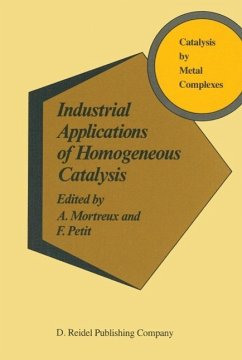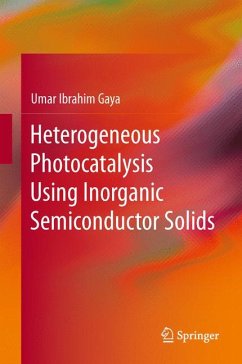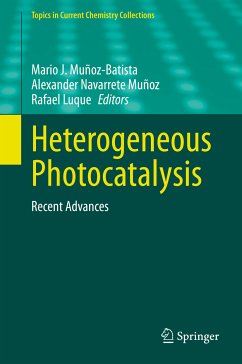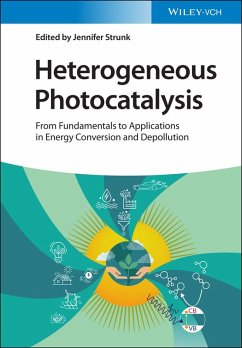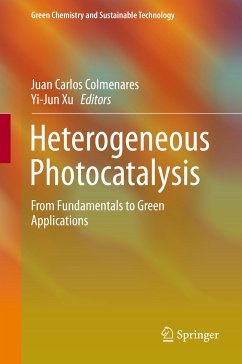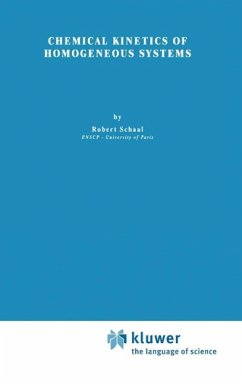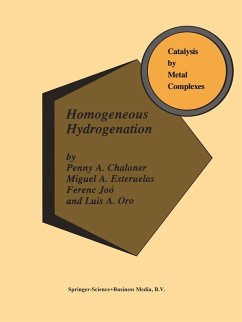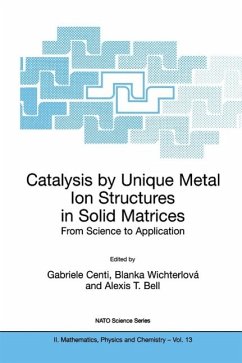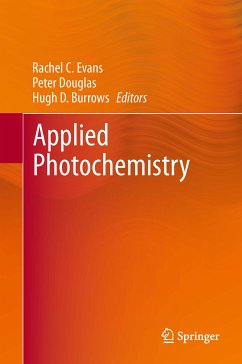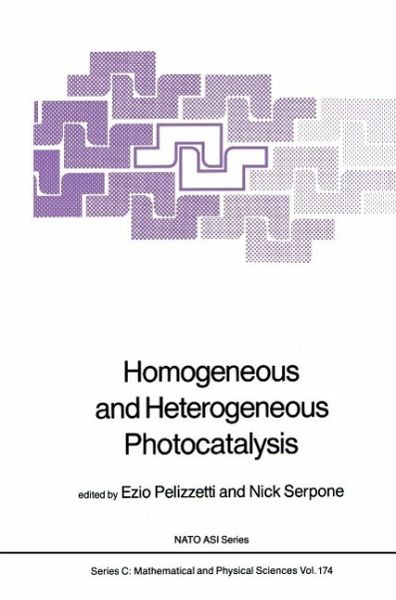
Homogeneous and Heterogeneous Photocatalysis (eBook, PDF)
Versandkostenfrei!
Sofort per Download lieferbar
232,95 €
inkl. MwSt.
Weitere Ausgaben:

PAYBACK Punkte
116 °P sammeln!
Ever since the oil crisis of 1973, researchers in various fields of chemistry have proposed various schemes to conserve energy, as well to convert the sun's abundant and limitless supply of energy to produce chemical fuels (e. g. , hydrogen from water, . .. ). The enthusiasm had no previous parallel in the mid-1970's. Unfortunately, despite the several good proposals, the results have proven - in retrospect - somewhat disappointing from an economic viable point of view. The reasons for the meagre results are manyfold not the least of which are the experimental difficulties encountered in stora...
Ever since the oil crisis of 1973, researchers in various fields of chemistry have proposed various schemes to conserve energy, as well to convert the sun's abundant and limitless supply of energy to produce chemical fuels (e. g. , hydrogen from water, . .. ). The enthusiasm had no previous parallel in the mid-1970's. Unfortunately, despite the several good proposals, the results have proven - in retrospect - somewhat disappointing from an economic viable point of view. The reasons for the meagre results are manyfold not the least of which are the experimental difficulties encountered in storage systems. Moreover, the lack of a concerted, well orchestrated interdisciplinary approach has been significant. By contrast, the chemical advances made in the understanding of the processes involved in such schemes have been phenomenal. A recent book on this issue ( M. Gratzel, Energy Resources through Photochemistry and Catalysis, 1983) is witness to the various efforts and approaches taken by researchers. In the recent years, many more groups have joined in these efforts, and the number of papers in the lit~rature is staggering ! One of the motives for organizing this NATO Advanced Research Workshop stemmed from our view that it was time to take stock of the accomplishments and rather than propose new schemes, it was time to consider seriously avenues that are most promising.
Dieser Download kann aus rechtlichen Gründen nur mit Rechnungsadresse in A, B, BG, CY, CZ, D, DK, EW, E, FIN, F, GR, HR, H, IRL, I, LT, L, LR, M, NL, PL, P, R, S, SLO, SK ausgeliefert werden.



